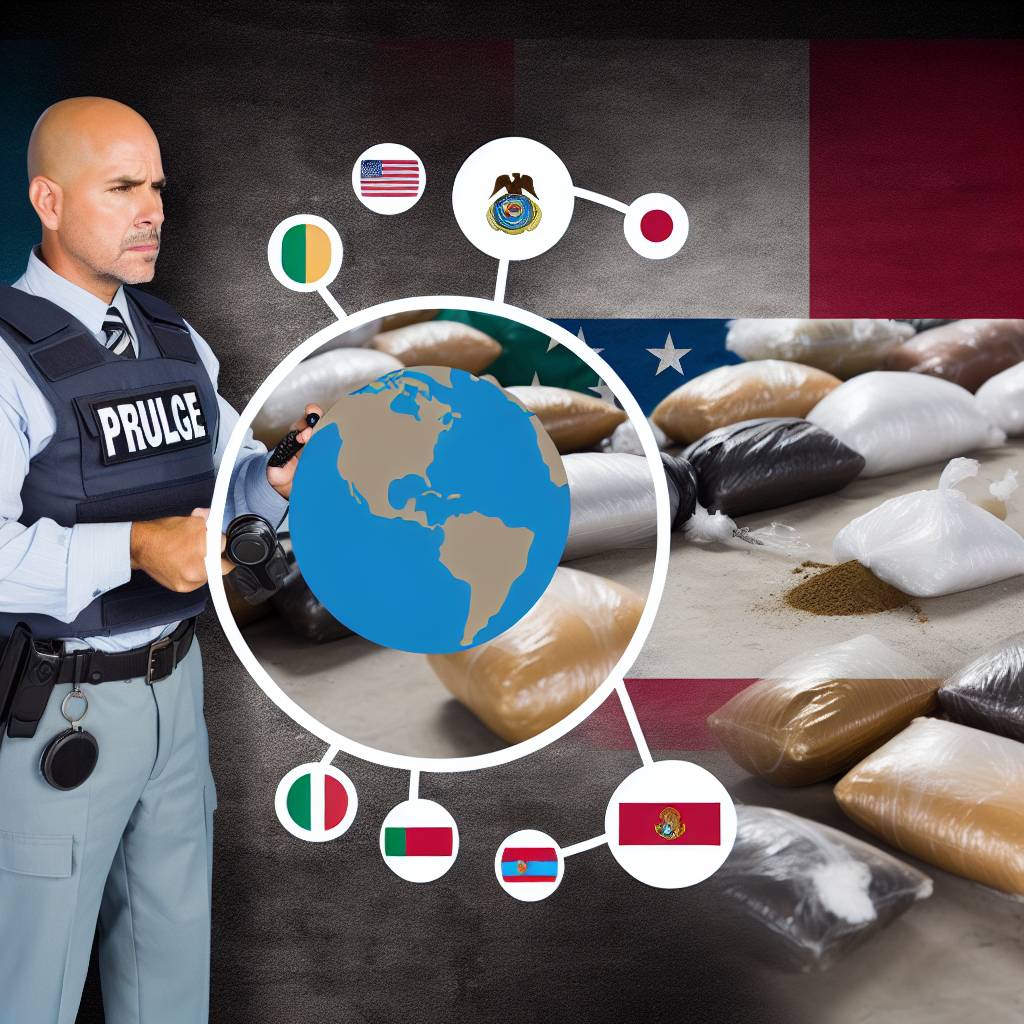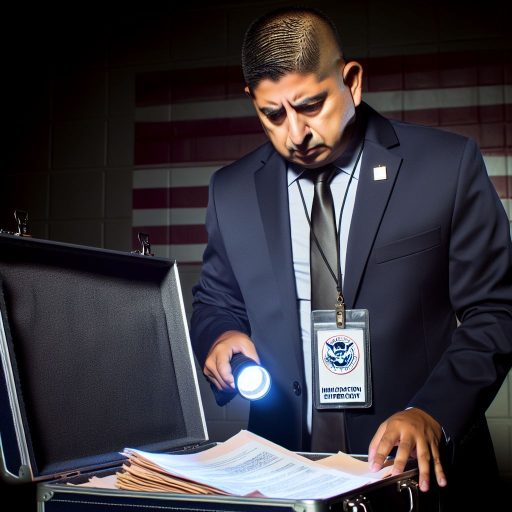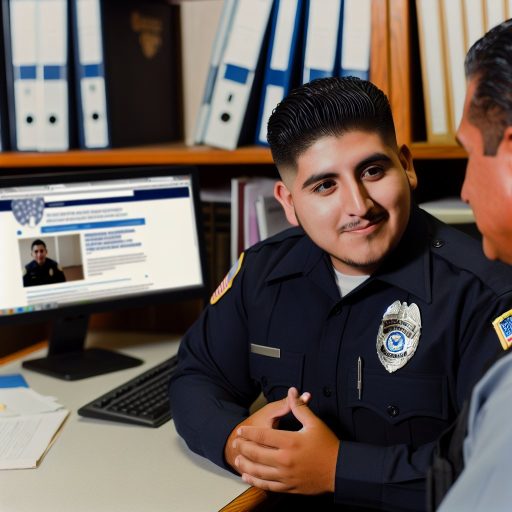Introduction:
DEA agents play a crucial role in combating drug trafficking on a global scale.
Their primary focus is on enforcing drug laws outside the United States.
They work in collaboration with international law enforcement agencies.
The goal is to disrupt and dismantle drug trafficking organizations.
The work of DEA agents is essential in combatting the illegal drug trade.
This trade poses significant threats to public health and safety worldwide.
By targeting drug trafficking organizations at an international level, they help prevent the flow of illicit drugs into communities.
They also aim to reduce drug-related violence.
Furthermore, they disrupt the financial operations of criminal groups.
Background of DEA agents:
DEA agents play a crucial role in combating drug trafficking both domestically and internationally.
These agents are highly trained and have a specific set of qualifications that make them qualified to carry out their duties effectively.
Training and qualifications to become a DEA agent:
DEA agents go through rigorous training to prepare them for the challenges they will face in the field.
To become a DEA agent, candidates must meet certain criteria, including having a bachelor’s degree and at least two years of relevant work experience.
They must also pass a thorough background check and drug test.
Once selected, candidates undergo an extensive training program at the DEA training academy.
During this time, they receive instruction on a wide range of topics, including firearms proficiency, surveillance techniques, and legal procedures.
This training equips them with the skills and knowledge they need to carry out their responsibilities effectively.
Responsibilities and duties of DEA agents in the United States:
DEA agents in the United States are responsible for enforcing federal drug laws and investigating drug-related crimes.
They work closely with other law enforcement agencies, such as the FBI and local police departments.
This collaboration helps to gather intelligence and conduct operations to disrupt and dismantle drug trafficking organizations.
Transform Your Career Today
Unlock a personalized career strategy that drives real results. Get tailored advice and a roadmap designed just for you.
Start NowDEA agents also work to build cases against individuals involved in drug trafficking.
This work may involve conducting undercover operations, gathering evidence, and obtaining search warrants.
They often work in high-pressure situations and must be prepared to handle dangerous and unpredictable circumstances.
In addition to their enforcement duties, DEA agents also play a role in educating the public about the dangers of drug abuse.
They emphasize the importance of prevention and work with schools, community organizations, and other groups to raise awareness.
This work is crucial in combating the opioid epidemic and other drug-related issues.
Expansion of DEA operations internationally:
Reasons for DEA agents operating in other countries:
- Globalization of drug trafficking networks necessitates a global response.
- To disrupt drug cartels that operate across international borders.
- To gather intelligence on transnational drug trafficking operations.
- To combat the flow of illicit drugs reaching American streets.
- To support U.S. national security interests by combating drug-related crime.
Collaboration with foreign law enforcement agencies:
- Sharing information and intelligence to track down drug traffickers.
- Conducting joint operations to dismantle drug trafficking networks.
- Providing training and capacity-building for foreign law enforcement.
- Strengthening diplomatic ties through mutual cooperation.
- Enhancing the effectiveness of drug enforcement efforts through partnerships.
Explore Further: DEA Agent’s Role in Border Security
Gathering Intelligence on Drug Trafficking Organizations
DEA agents play a crucial role in gathering intelligence on drug trafficking organizations operating internationally.
This involves monitoring communication channels, tracking financial transactions, and identifying key players within these criminal networks.
By collecting a wide range of information, such as locations of drug labs, smuggling routes, and distribution networks, DEA agents can build a comprehensive picture of how these organizations operate.
This intelligence is essential for developing effective strategies to disrupt and dismantle these criminal enterprises.
Conducting Undercover Operations to Infiltrate Drug Networks
In addition to gathering intelligence, DEA agents also conduct undercover operations to infiltrate drug networks and gather evidence against key individuals involved in drug trafficking.
These operations require agents to assume false identities and gain the trust of criminals in order to gather valuable information.
Through these undercover operations, DEA agents can gather critical evidence, such as audio and video recordings, that can be used in court to secure convictions against drug traffickers.
This hands-on approach is essential for building strong cases against individuals involved in illegal drug activities.
Uncover the Details: How CBP Officers Handle Emergency Situations
Coordination with international partners:
– Sharing information and expertise with foreign counterparts
– Joint task forces and operations with other countries’ law enforcement agencies
DEA agents play a crucial role in international drug enforcement by collaborating with their counterparts in other countries.
Showcase Your Business Today
Reach thousands of readers actively exploring professional services. Publish your business profile and grow your audience now.
Publish NowThis cooperation is essential for gathering intelligence, conducting operations, and ultimately disrupting drug trafficking networks on a global scale.
One of the key aspects of the DEA agent’s role in international drug enforcement is the sharing of information and expertise with foreign counterparts.
By working together, agents can exchange valuable intelligence that helps in identifying drug trafficking routes, key players in criminal organizations, and emerging trends in the drug trade.
Additionally, DEA agents often participate in joint task forces and operations with law enforcement agencies from other countries.
These collaborative efforts allow for a more coordinated approach to tackling drug trafficking, as multiple agencies pool their resources, knowledge, and skills to achieve common objectives.
Through these partnerships, DEA agents are able to leverage the strengths and capabilities of their international counterparts.
As a result, more effective and impactful operations occur.
By combining forces, agents can target drug trafficking networks that operate across borders and disrupt their activities.
Furthermore, coordination with international partners enables DEA agents to access a broader range of resources and expertise.
This includes specialized knowledge of regional drug trafficking dynamics, language skills, cultural understanding, and established networks within local communities.
Collaboration between DEA agents and their international partners is vital for combating the global drug trade.
By working together, law enforcement agencies can more effectively identify, investigate, and dismantle drug trafficking networks.
Ultimately, this collaboration makes a significant impact on the flow of illegal drugs worldwide.
See Related Content: Public Safety Officer Training: What to Expect
DEA Agents’ Role in Disrupting Drug Trafficking
DEA agents play a crucial role in disrupting and dismantling drug trafficking networks by taking various actions.
Executing raids and arrests of key players in drug organizations
DEA agents are tasked with gathering intelligence and coordinating with other law enforcement agencies to identify the individuals responsible for orchestrating drug trafficking operations.
Once identified, DEA agents plan and execute raids to apprehend these key players.
These arrests are often made with the element of surprise to prevent suspects from evading capture.
Furthermore, DEA agents work closely with prosecutors to build strong cases against these individuals.
They ensure that they are brought to justice and held accountable for their illegal activities.
By targeting the leaders of drug organizations, DEA agents aim to disrupt the flow of drugs and dismantle the criminal enterprises involved in trafficking.
Seizure of drugs, assets, and weapons involved in drug trafficking
Another critical aspect of the DEA agent’s role in international drug enforcement is the seizure of illicit drugs, assets, and weapons used in drug trafficking.
DEA agents collaborate with other agencies to track down and intercept shipments of drugs as they move across borders.
When drugs are seized, DEA agents work to gather evidence that can be used in court cases against traffickers.
In addition to drugs, DEA agents also target the assets gained from illegal activities, such as money laundering schemes.
By seizing these assets, DEA agents disrupt the financial infrastructure that supports drug trafficking networks.
Furthermore, DEA agents focus on intercepting weapons that are used by drug traffickers to protect their operations.
By preventing these weapons from reaching criminal organizations, DEA agents aim to enhance the safety of communities and law enforcement personnel.
Overall, through the seizure of drugs, assets, and weapons, DEA agents make significant strides in combating drug trafficking on an international scale.
You Might Also Like: Travel Tips from TSA Officers for Smooth Airport Security

Challenges faced by DEA agents in international drug enforcement:
When it comes to combating drug trafficking on a global scale, DEA agents encounter a host of challenges that can impede their efforts.
These challenges not only test their skills and expertise but also require them to adapt to unfamiliar environments and situations.
Here are some of the key challenges faced by DEA agents in international drug enforcement:
Language barriers and cultural differences:
- Communication is essential in any law enforcement operation, but language barriers can make it difficult for DEA agents to effectively gather intelligence and coordinate with local authorities.
- Cultural differences can also present challenges, as agents must navigate unfamiliar customs and traditions that shape how drug trafficking operates in a particular region.
Corruption within local law enforcement agencies:
- One of the most significant challenges DEA agents face is dealing with corruption within local law enforcement agencies in foreign countries.
- Corrupt officials may leak information to drug traffickers, sabotage investigations, or actively work to undermine the DEA’s efforts to combat drug trafficking networks.
DEA agents operating in foreign countries encounter a myriad of challenges that test their abilities and require them to adapt to complex and often dangerous environments.
Overcoming language barriers, cultural differences, and corruption within local law enforcement agencies are just a few of the obstacles they must navigate in their mission to disrupt and dismantle international drug trafficking networks.
Impact and Successes of DEA Agents in International Drug Enforcement:
- Reduction of drug trafficking activities affecting the United States
- Statistics on seizures and arrests made by DEA agents in international operations
Reduction of Drug Trafficking Activities Affecting the United States
DEA agents play a crucial role in reducing drug trafficking activities that have a direct impact on the United States.
Through their extensive intelligence gathering and operational expertise, they are able to disrupt major drug trafficking networks that operate across borders.
By targeting key players in these organizations, DEA agents can significantly reduce the flow of illicit drugs into the US, thereby protecting American communities from the harmful effects of drug abuse and addiction.
Statistics on Seizures and Arrests Made by DEA Agents in International Operations
DEA agents have been highly successful in conducting international operations that result in significant seizures of illegal drugs and arrests of key individuals involved in drug trafficking.
The statistics speak for themselves, with millions of dollars worth of drugs being confiscated and numerous high-profile arrests being made each year.
Showcase Your Business Today
Reach thousands of readers actively exploring professional services. Publish your business profile and grow your audience now.
Publish NowThese operations not only disrupt the flow of drugs into the US but also send a strong message to traffickers that law enforcement will not tolerate their criminal activities.
Through their dedication, expertise, and relentless pursuit of justice, DEA agents continue to make a significant difference in the fight against drug trafficking on a global scale.
Their efforts not only protect American communities but also contribute to the larger goal of creating a safer and more secure world for all.
Importance of DEA Agents in International Drug Trafficking
DEA agents are instrumental in combating international drug trafficking.
They disrupt criminal organizations with relentless efforts and unwavering commitment.
Agents gather intelligence, conduct investigations, and collaborate with foreign counterparts.
Their work dismantles drug trafficking networks effectively.
Recognizing and supporting DEA agents in foreign countries is essential.
These agents are on the front lines of the war against drug abuse.
Ongoing Support for DEA Operations
Global drug trafficking continues to pose threats to public safety.
It is imperative to provide ongoing support for DEA operations abroad.
Together, we must combat the flow of illegal drugs across borders.
Let us pledge support to these dedicated professionals.
They work tirelessly to uphold the rule of law in this international fight.
Additional Resources
International Drug Control Policy: Background and U.S. Responses
Police and Detectives : Occupational Outlook Handbook: : U.S. …
[E-Books for Sale]
The Big Book of 500 High-Paying Jobs in America: Unlock Your Earning Potential
$19.99 • 500 High-Paying Jobs • 330 pages
Explore 500 high-paying jobs in America and learn how to boost your career, earn more, and achieve success!
See All 500 High-Paying Jobs of this E-Book
1001 Professions Without a Degree: High-Paying American Jobs You Can Start Now
$19.99 • 1001 Professions Without a Degree • 174 pages
Discover 1001 high-paying jobs without a degree! Unlock career tips, skills, and success strategies for just $19.99!




